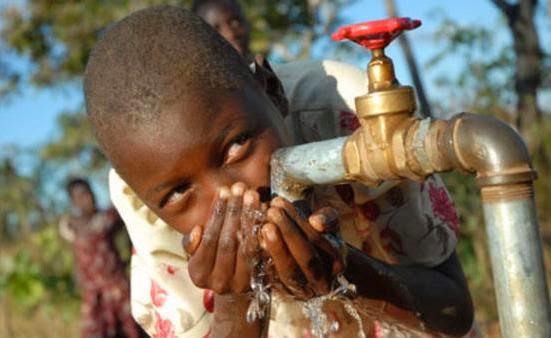Only 27% of Ghanaians access potable water – Report
 Only 27 per cent of Ghanaians have access to safe and potable water, a 2017 joint monitoring programme report has revealed.
Only 27 per cent of Ghanaians have access to safe and potable water, a 2017 joint monitoring programme report has revealed.
According to the report conducted by the International Water and Sanitation Centre (IRC Ghana), an independent international non-profit organisation and its partners, national access to basic sanitation stands at 14 per cent.
Ms Vida Duti, the Country Director of the IRC Ghana, which works in the area of water supply, sanitation, and hygiene, disclosed the country was making slow progress in achieving set targets for goal six of the Sustainable Development Goals (SDGs).
The goal six of the SDGs seek to ensure water and sanitation for all by 2030.
More so, the Ghana Water Sector Strategic Development Plan (2014) aims to make water, sanitation and hygiene services universally for all people resident in Ghana, and to manage water resources for multiple purposes by 2025.
Speaking at the launch of the implementation of a full WASH (Water, Sanitation and Hygiene) coverage initiative at Kenyasi Number One in the Asutifi North District of the Brong-Ahafo Region, Ms Duti said it required collective efforts and cooperation to ensure availability and sustainable management of water and sanitation for all.
Dubbed “Asutifi North Ahonidie Mpontuo” (ANAM), the WASH coverage initiative is being implemented by the IRC in collaboration with the District Assembly and Conrad N Hilton Foundation (CNHF) and its allied partners.
It is a WASH master plan developed to respond to the challenges in the WASH sector with target of providing full coverage by 2030 – every person in Asutifi North District will have access to sustainable safe water, sanitation and hygiene services in an environment where water resources are sustainably managed.
The other CNHF partners supporting the intuitive include Safe Water Network, World Vision International, Netcentric Campaigns, Aquagya Institute and the National Foundation for the Centres for Disease Control and Prevention (CDC).
Ms Duti noted that water and sanitation coverage in the Asutifi North were worsened as only three per cent of the District population had access to safely managed drinking water and 23 per cent access to basic sanitation, hence the implementation of the initiative.
The intent is to progressively advance, driven by the District Assembly in coordinating stakeholders’ efforts towards implementation of the master plan and alignment with national policies and processes.
She appealed to stakeholders from government, civil society and non-governmental organizations, private sector, service providers and users as well as traditional authorities and the media to support the initiative to achieve useful outcomes.
Mr. Kwaku Asomah-Cheremeh, the Brong-Ahafo Regional Minister, indicated that potable water and improved sanitation had been found to correlate positively with school enrolment, reduction in infant mortality, increase in productivity, promotion of gender equality and elimination of abject poverty.
It has been documented that WASH has the potential to prevent at least 9.1 per cent of the global disease burden and 6.3 per cent of all deaths, he stated.
Mr. Asomah-Cheremeh called on the Asutifi North District Assembly and people in the District to cooperate and contribute their part to ensure that the project become successful for their own benefit.
Source: GNA
